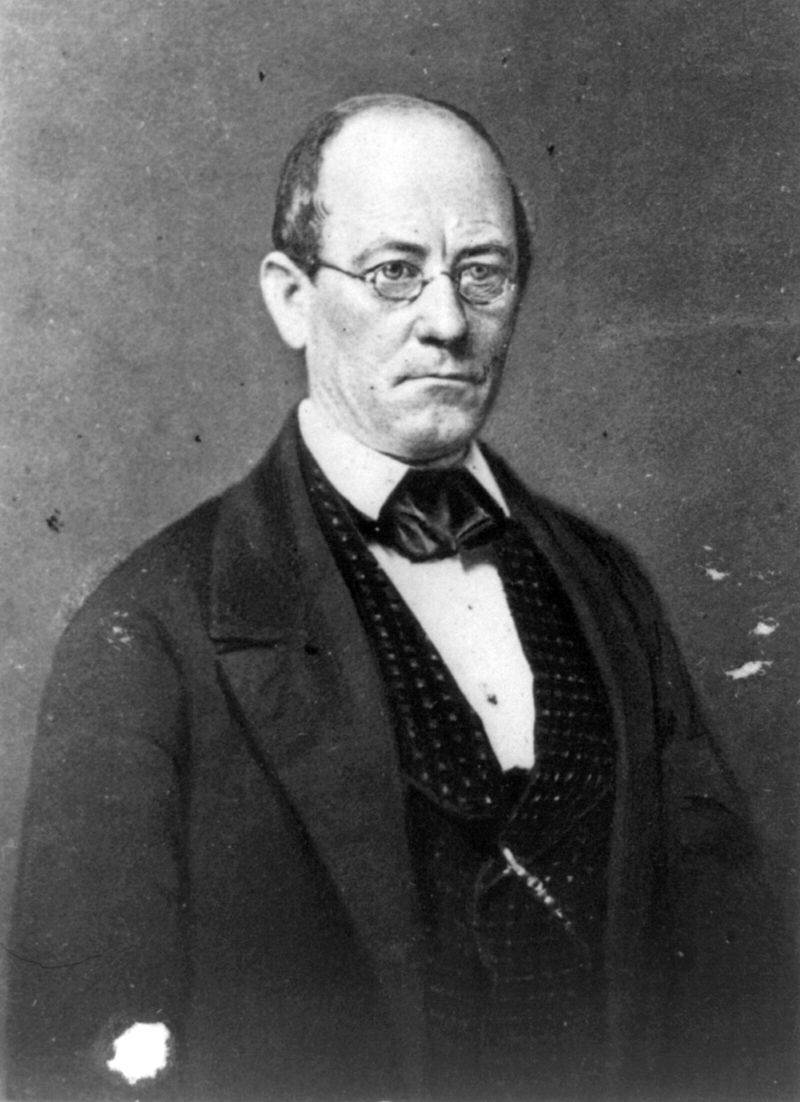John Letcher
John Letcher was born on March 29, 1813, in Lexington, Virginia, to William Houston Letcher and Elizabeth Davidson. His father was a carpenter who owned $8,800 of real estate and $1,000 of personal property by 1860. He grew up and attended school in Lexington, and he briefly attended Washington College (present-day Washington and Lee University). His father arranged a carpentry apprenticeship for him, but Letcher chose to study law instead. He earned admission to the bar and opened his legal practice in 1839. He also served as editor for the Valley Star, a Democratic newspaper in Lexington.
Letcher married Mary Susan Holt in 1843 and they had eleven children: William, born around 1841; Elizabeth, born in around 1847; Samuel, born around 1848; Andrew, born around 1850; John, born around 1852; Susan, born around 1855; Margaret, born around 1857; Mary, born around 1859; Virginia, born around 1862; Fanny, born around 1864; and Greenlee, born around 1867. Four of their children died in childhood. Letcher promoted reform within Virginia. In 1851, as a delegate to the state’s constitutional convention, he helped secure universal white male suffrage and the direct election of the governor. He also, briefly, supported the 1847 Ruffner Pamphlet, which called for the gradual emancipation and colonization of western Virginia’s slaves.
He served in Congress from 1851 until 1859, and he became governor of Virginia in January 1860. He positioned himself as a sectional moderate, and he supported Northern Democrat Stephen Douglas in the presidential election of 1860. He helped organize the Peace Conference in Washington, D.C., in February 1861, and he initially resisted calls for secession. By April 1861, however, he had sided with the Confederacy, and he began mobilizing Virginia for war. As a wartime governor, one writer notes, “Letcher attempted to balance the interests of the state against those of the Confederacy…On the one hand, Letcher represented his constituents’ discontent—especially over infringements of civil and property rights—to the Confederate government; on the other, he employed a firm hand to quell dissent.”
He served as governor until January 1864. Union forces burned Letcher’s home in June 1864, and they arrested him on May 20, 1865. He spent the next six weeks in prison. Letcher remained active in politics after the war, serving in the Virginia legislature from 1875 until 1877. By the early 1880s, he was suffering from paralysis. He died in Lexington on January 26, 1884.
Image: John Letcher (courtesy Wikicommons)
DATABASE CONTENT
| (72) | Letcher, John | 1813-03-29 | 1884-01-26 |
- Conflict Side: Confederacy
- Role: Civilian
- Rank in:
- Rank out:
- Rank highest:
- Gender: Male
- Race: White
Documents - Records: 3
Places - Records: 1
- (1400) [birth, death] ~ Lexington, Rockbridge County, Virginia
Groups - Records: 1
- (1) [politician] ~ Democratic Party
SOURCES
1850, 1860, 1870, and 1880 United States Federal Censuses, available from Ancestry.com; Virginia Death Registers, 1853-1911, available from Ancestry.com; Aerika A. Wright, “John Letcher (1813-1884),” Encyclopedia Virginia, available from https://encyclopediavirginia.org/entries/letcher-john-1813-1884; “John Letcher” Wikipedia profile, available from https://en.wikipedia.org/wiki/John_Letcher





